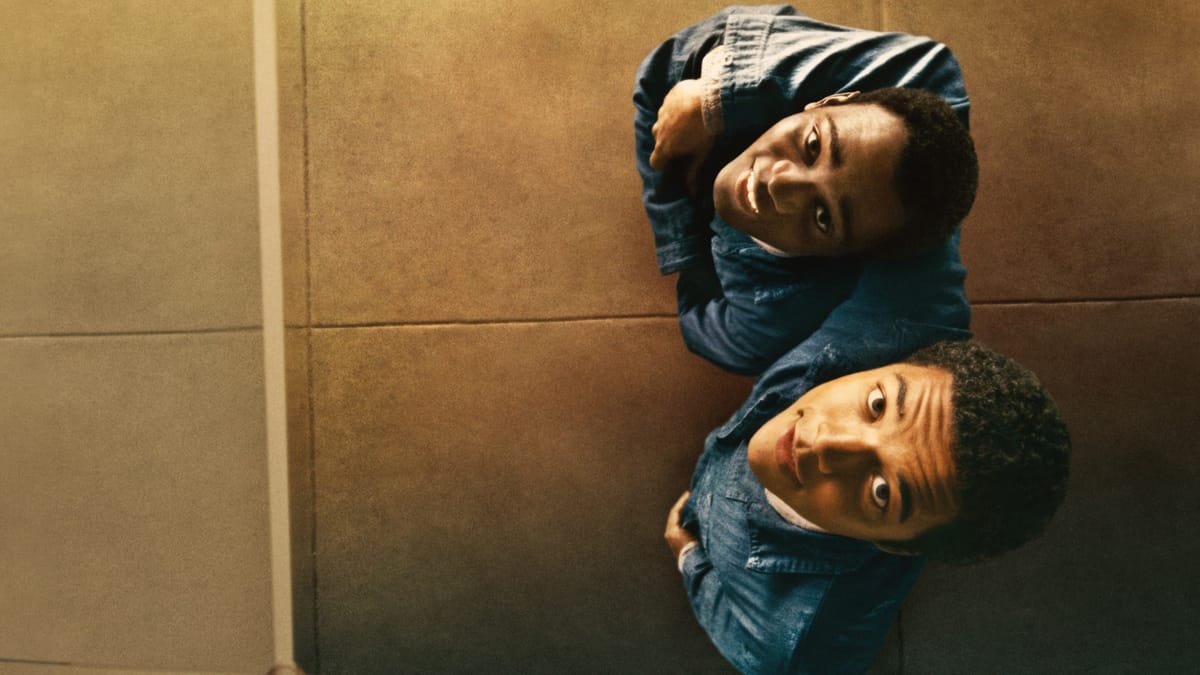Nickel Boys
One of the most intimate movie experiences you're ever likely to experience.

The opening shot of the film is a steady view of the sky. It's a clear day, and the sounds of nature fill our ears. And I mean our ears: from this very first instant, the sound design is absolutely immaculate, fully utilizing the sophistication of modern surround sound to precisely project all manner of noises into space to completely immerse us in the world. When the first camera move comes maybe thirty seconds later, it becomes clear why. The camera is not a camera: the camera is the eye of young Elwood (Ethan Herisse), a fifteen year old Black boy living in Tallahassee in the 1960s.
From jump, this movie announces itself as something special.
The whole thing is like that: there are no traditional camera placements to be found. The vast majority of the film is shown from Elwood's literal POV, with only two divergences. Once he meets Turner (Brandon Wilson), another Black boy carelessly thrown into a situation similar to his own, we occasionally see Elwood from behind the other boy's eyes, which communicates just how strongly Elwood sees himself in Turner. The other is the few times we see Elwood as an adult (Daveed Diggs), during which our view is locked slightly behind and above his head, only revealing his face in reflection on one occasion, indicating how his life has forced him to dissociate and disconnect from his sense of self. This is used for a couple short scenes in the 1980s when he runs into a former "classmate" he hasn't seen in nearly thirty years, and a few more in the modern day as he reads articles detailing the uncovering of more and more bodies found on the grounds of Nickel Academy.
Elwood's life had been on a different track. His teacher Mr. Hill (Jimmie Fails) took an interest, and got him accepted to the (fictional) HBCU Melvin Griggs Technical College. While hitchhiking to campus, a traffic stop was used as an excuse to send him to the Nickel Academy, a segregated reform school based on the very real and very disturbing Florida School for Boys. The whole place is far more akin to a juvenile prison than a school: dirty, run down, gray and blue concrete buildings, a shed specifically for inflicting punishment, and forced manual labor in lieu of classroom instruction. The only way to "graduate" before turning eighteen is a nonsense promotional ladder for "behaving as you ought to", which is of course just another tool for control. The boys can rely on no one but each other, although even that can be a struggle in the face of the adults very deliberately pitting them against each other.
It's hard to communicate the intensity of the experience of seeing this movie in a packed theater. It's astounding how well the technical aspects work in concert to truly make you feel like Elwood. It takes no time at all before your own identity starts to slip away as you tour this boy's life and memories. When people address him, they're reaching through the screen to address you. Every smile, every bit of vitriol and violence, every hateful slur or passive aggressive comment, every single thing comes at you in a way that's impossible to dodge. You cannot help but imagine all the scenarios and life events unseen, as the movie has taught you how to see the world as Elwood. It's the closest a white dude like me can possibly get to an emotional understanding of the experience of being Black in America (not that it's the same thing, it's just closer than anything else).
Through all of this, as you experience the immense hardships that suppress his potential, even then, he manages to find a tiny shred of light in that darkness. It's a survival tactic: living your best life is a bit of defiance they can't take away from you, and hope gives you a reason to live and a drive to get out from under the boot. They can prevent his life from turning out how he wants, they can make him bitter, but they cannot deprive him of his humanity. To that end, even in such an awful place, he will not be held down: he receives his first major punishment for jumping in to prevent some bullies from raping another boy in the bathroom. His resolve is bolstered by the poetic bits of wisdom and storytelling which periodically come to him from his memory of his grandmother Hattie (Aunjanue Ellis-Taylor). When the despair gets to be too much, her words provide some measure of comfort.
No movie has ever been quite like Nickel Boys. Plenty of first-person scenes and shots litter the medium's history: my favorite is probably the opening of the original Halloween. There have even been a handful of movies mostly or entirely shot in the first person: Hardcore Henry, Enter the Void, and Russian Ark come to mind. But none of them use it to fulfill the promise of motion pictures as a mechanism to transport us into the mind of another person. In the words of Roger Ebert:
In the face of an uncertain world which gets more and more insular and terrifying by the day, we all stand to benefit from pumping as much empathy into the ether as possible.